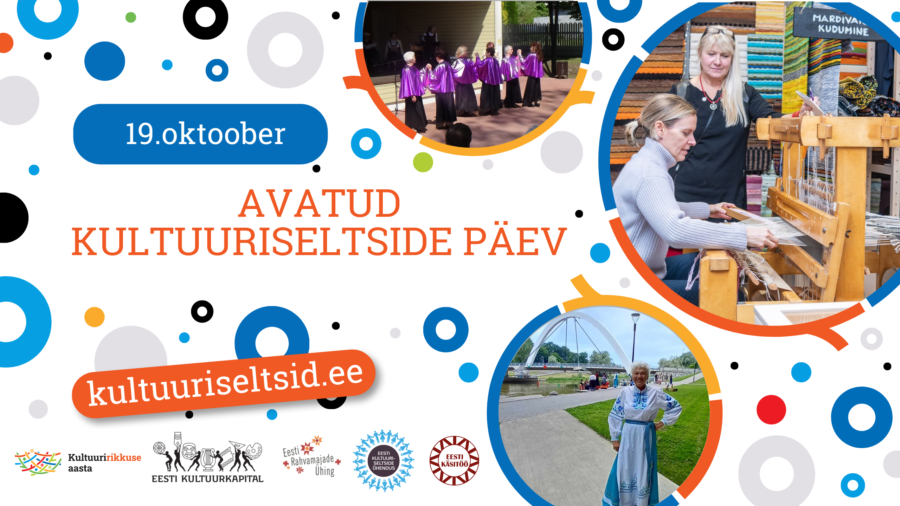
On Saturday, 19 October, in cooperation with its partners, the Association of Estonian Cultural Societies will host the statewide Open Cultural Societies Day. The purpose of the event is to introduce cultural societies operating in Estonia, their activities, and their role in society within the framework of the Cultural Diversity Year.
On this day, several dozen societies open their doors to guests all over Estonia. Those interested can find information about their locations, activities, and opening hours in the Open Cultural Societies Day 2024 map application. Among them are 20 open craft workshops, several village societies, and societies of ethnic minorities, who introduce their activities in promoting local cultural and educational life through concerts, presentations, and workshops. At the same time, the Estonian Community Centres Week takes place on 14–20 October, during which 116 community centres will open their doors.
As the central event of the day, a fair of cultural societies will take place on 19 October at Kammivabrik (26 Teguri Street, Tartu), with the seminar ‘So That’s It!?’ starting at noon. It will focus on the development possibilities of folk culture in the near future and against the background of the current cutback plans, and will include talks by representatives of the state and local governments, businesses, and cultural societies.
According to Ants Johanson, a Member of the Board of the Association of Estonian Cultural Societies, the Open Cultural Societies Day provides a good opportunity to get to know the activities and special features of cultural societies. ‘Cultural societies have played an important role in the birth and development of the Estonian state and in the restoration of statehood, and the spiritual aspect and the active nature of today’s society rests on them. Most of the time, we do not know how to value it – we even underestimate it. These societies, the integral centres of progress and of local community life, are an opportunity for communication and self-actualisation, especially in rural areas. Hopefully, with our event, our fellow citizens find some nice society that will help enrich their lives,’ said Ants Johanson.
The Project Manager of the Cultural Diversity Year, Eero Raun, considers this event one of the highlights of the theme year. ‘Throughout Estonia, anyone who wishes to do so can take part in various aspects of Estonian folk culture as well as the cultural and educational life of ethnic minorities living in Estonia. This way, we will be able to define the diverse role of culture in fostering social cohesion, mutual understanding, and cooperation skills,’ said Eero Raun.
This event is a collaboration between the Association of Estonian Cultural Societies, the Integration Foundation, the Association of Estonian Community Centres , the Estonian Folk Art and Craft Union, the Estonian Folk Culture Centre, and the Cultural Endowment of Estonia.
The Cultural Diversity Year (kultuuririkkus.ee) is a theme year held by the Estonian Ministry of Culture and the Integration Foundation to celebrate the cultural diversity of Estonians and other peoples living in Estonia.
For more information, visit the website kultuuriseltsid.ee and our Facebook page facebook.com/eestikultuur
